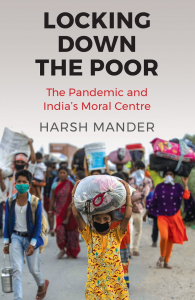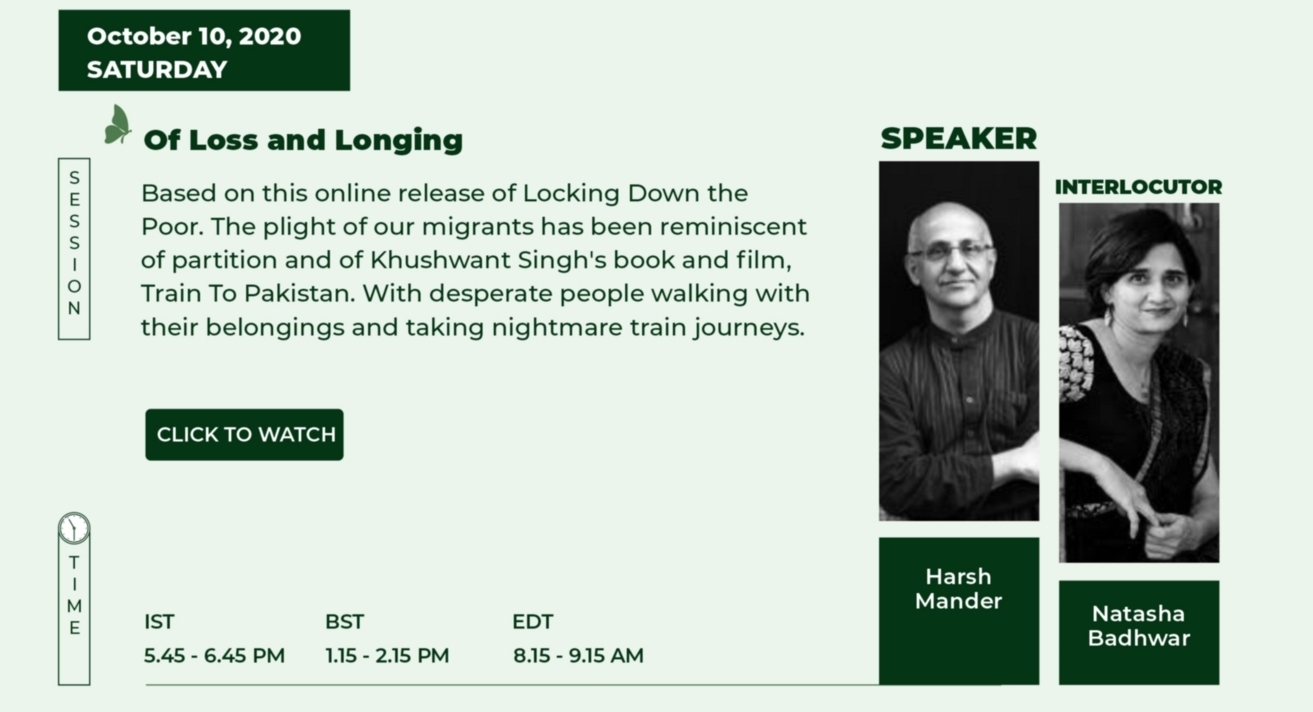LOCKING DOWN THE POOR
In early 2020 the first cases of COVID-19 infection were confirmed in India, and on the night of 24 March the country’s prime minister announced a nationwide lockdown, giving the population of over 1.3 billion just four hours’ notice. Within days, it became evident that India had plunged into what could be its biggest humanitarian crisis since Partition.
In this powerful and urgent book, Harsh Mander shows us how grave this crisis was and continues to be, and why it is the direct consequence of public policy choices that the Indian government made, particularly of imposing the world’s longest and most stringent lockdown, with the smallest relief package. ‘It was apparent,’ writes Mander, ‘that while some lives were to be protected, others were dispensable.’ The Indian state chose to abandon its poor and marginalised, even as it destroyed their livelihoods and pushed them to the brink of starvation.
Mander brings us voices of out-of-work daily-wage and informal workers, the homeless and the destitute, all overwhelmed by hunger, helplessness, humiliation and dread. From the highways and overcrowded quarantine centres he brings us stories of some of the estimated three crore migrant workers who walked hundreds of kilometres to their villages, or were prevented from doing so and detained.
He lays bare the criminal callousness at the heart of a strategy that forced people to stay indoors in a country where tens of crores live in congested shanties or single rooms with no possibility of physical distancing, no toilets, no running water and no resources to buy and store essential items in bulk. He examines how the country’s health and welfare systems collapsed, primarily because of the hubris and inefficiency of a regime obsessed with image management and emboldened by the apathy of the vast majority of the ruling elite and middle class.
Drawing upon his own and other relief workers’ experiences, and combining hard data with credible surveys and news reports, Mander argues with great clarity and passion that India is in the middle of a humanitarian catastrophe, the effects of which will be felt for decades. Our only hope, he writes, lies in genuine democracy and unwavering solidarity—in ‘rebuilding our broken country into one which is more compassionate, more just and more equal’.

































